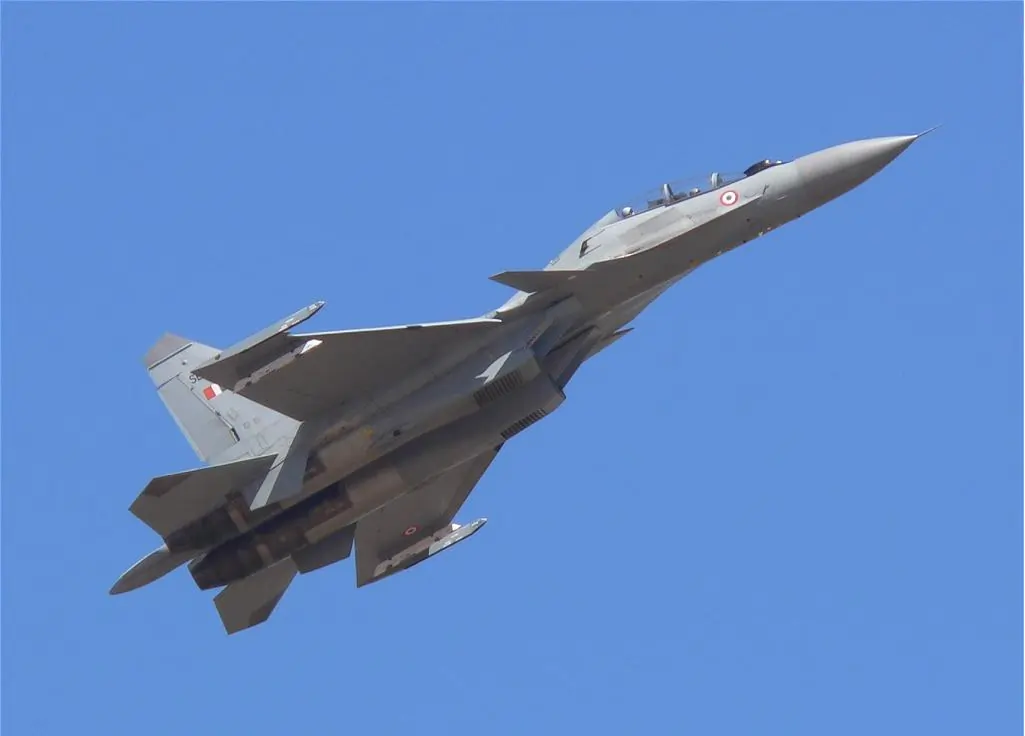The Sukhoi Su-30MKI, a multirole combat fighter aircraft, represents a successful collaboration between the Sukhoi Design Bureau and Hindustan Aeronautics Limited (HAL), tailored specifically for the Indian Air Force (IAF). Evolved from the Su-30 fighter aircraft, the Su-30MKI boasts thrust vectoring control and canards, enhancing its performance and versatility. This article delves into the extensive journey of the Su-30MKI, exploring its development, production, specifications, and weaponry.
Table of Contents
Sukhoi Su-30MKI Specifications
| Parameter | Description |
|---|---|
| Development | |
| Manufacturer | Sukhoi Design Bureau, Hindustan Aeronautics Limited (HAL) |
| First Flight | July 1997 (Su-30I-1) |
| Production Start | 2000 |
| Production Status | Ongoing |
| Orders and Deliveries | |
| Total Orders | 222 |
| Orders Fulfilled | 260 (as of January 2020) |
| Expected Deliveries | 12 by the end of 2020 |
| Design and Avionics | |
| Length | 21.9 meters |
| Wingspan | 14.7 meters |
| Height | 6.4 meters |
| Maximum Take-off Weight | 38,800 kg |
| Cockpit Capacity | 2 Pilots |
| Cockpit Avionics | Integrated avionics suite, Elbit Su 967 Head-Up Display (HUD), 7 Active-Matrix Liquid Crystal Displays (AMLCD), Thales primary cockpit instrumentation |
| Avionics (HAL-built) | Multifunction Displays (MFD) supplied by Samtel Display Systems |
| Flight Control System | Fly-by-wire (FBW) |
| Radar | N011M Passive Electronically Scanned Array Radar, Zhuk AESA (Active, Electronically Scanned Array) Radar (upcoming replacement) |
| Optics | OLS-30 Laser-Optical Locator System, Litening Target Designation Pod |
| Weapon Systems and Countermeasures | |
| Cannon | 30mm Gsh-30-1 cannon with 150 rounds of ammunition |
| Hardpoints | 12 |
| Maximum External Stores Capacity | 8,000 kg |
| Air-to-Surface Missiles | Kh-29L/T/TYe, Kh-31A/P, Kh-59M, Nirbhay |
| Air-Launched Cruise Missile | BrahMos supersonic cruise missile (successfully integrated) |
| BrahMos Range | 290 km |
| Air-to-Air Missiles | Vympel R-27R, R-73, R-77 |
| Bombs | KAB-500, KAB-1500 laser-guided bombs |
| Countermeasures | Tarang Radar Warning Receiver (RWR), Chaff/Flare Dispensers, Active Jammers |
| Sukhoi Su-30MKI Engine | |
| Engine | 2 x Al-31FP Turbojet Engines |
| Maximum Thrust (Each Engine) | 12,500 kgf (Full afterburn) |
| Maximum Speed | Mach 1.9 (Horizontal flight) |
| Rate of Climb | 300 m/s |
| Maximum Unrefueled Flight Range | 3,000 km |
| In-flight Refueling Range | 8,000 km (with two refuelings) |
Development
The development of the Su-30MKI for the IAF was initiated in 1995, with Sukhoi and Irkutsk Aircraft Production Association (now Irkut Corporation) leading the development and production phases, respectively. Between 1995 and 1998, Sukhoi constructed two prototypes of the Su-30MKI, with the first prototype, Su-30I-1, conducting its maiden flight in July 1997. Production commenced at the Irkutsk plant in 2000, with the first pre-production aircraft completing its maiden flight in November 2000.
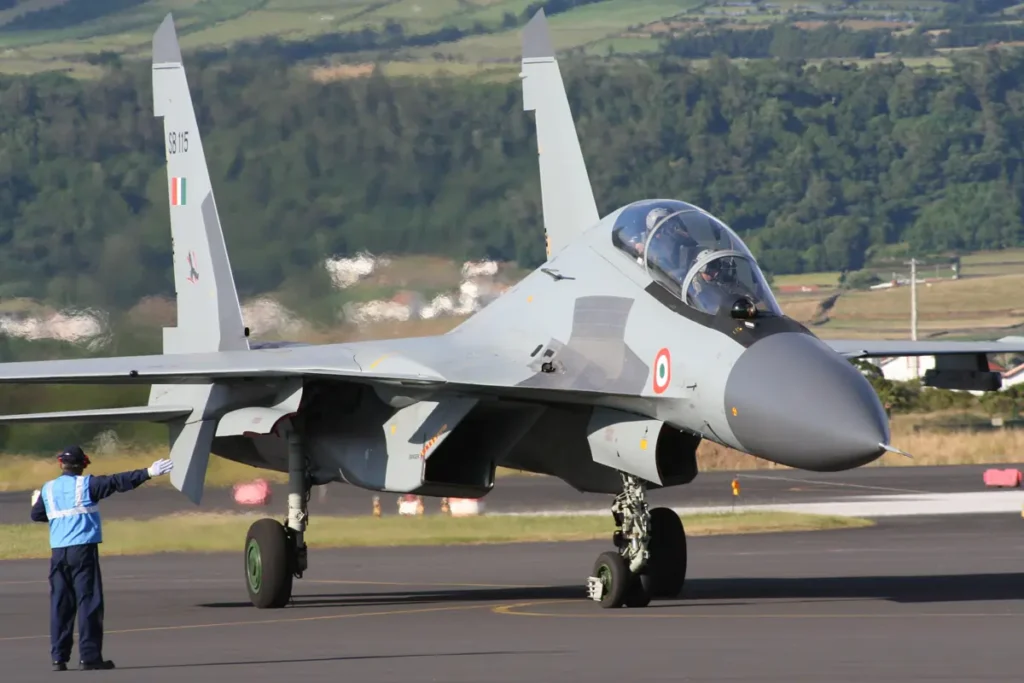
India’s involvement in the program was solidified by a Memorandum of Understanding (MoU) with Russia in October 2000, marking the beginning of licensed production of Su-30MKIs at HAL’s plant. A significant milestone was achieved when the Indian Air Force received the first domestically overhauled Su-30MKI in October 2018.
Orders and Deliveries
In November 1996, India placed an order with Sukhoi for eight Su-30K fighters and 32 Su-30MKI aircraft. These aircraft, fitted with enhanced avionics, engines, and weapons, were delivered in batches. A contract between HAL and Rosoboronexport in December 2000 set forth the licensed production of Su-30MKI aircraft. HAL was tasked with producing a total of 140 Su-30MKIs in four phases, with the program slated for completion by 2015.
The first ten Russian-made Su-30MKI aircraft were delivered to the IAF in mid-2002 and were inducted into service in September 2002. The second batch of 12 aircraft was delivered in 2003. HAL rolled out the first Su-30MKI assembled by them in November 2004, with the initial batch of two aircraft being delivered to the IAF in March 2005. A subsequent order for 40 Su-30MKIs was placed with HAL by the IAF in 2007.
In December 2012, HAL inked a contract with the Ministry of Defence and Rosoboronexport for the production and delivery of 42 Su-30MKI aircraft, bringing the total number of orders to 222. As of January 2020, the IAF operates 260 Su-30MKIs, with 12 more expected to be delivered by the end of 2020.
Sukhoi Su-30MKI Design and Avionics
The Sukhoi Su-30MKI features an aerodynamic airframe constructed of titanium and high-intensity aluminum alloys. The twin stabilizers and horizontal tail consoles are joined to tail beams, while the semi-monocoque fuselage head includes the cockpit, radar sections, and the avionics bay. The aircraft, with a length of 21.9m, a wingspan of 14.7m, and a height of 6.4m, has a maximum take-off weight of 38,800kg.
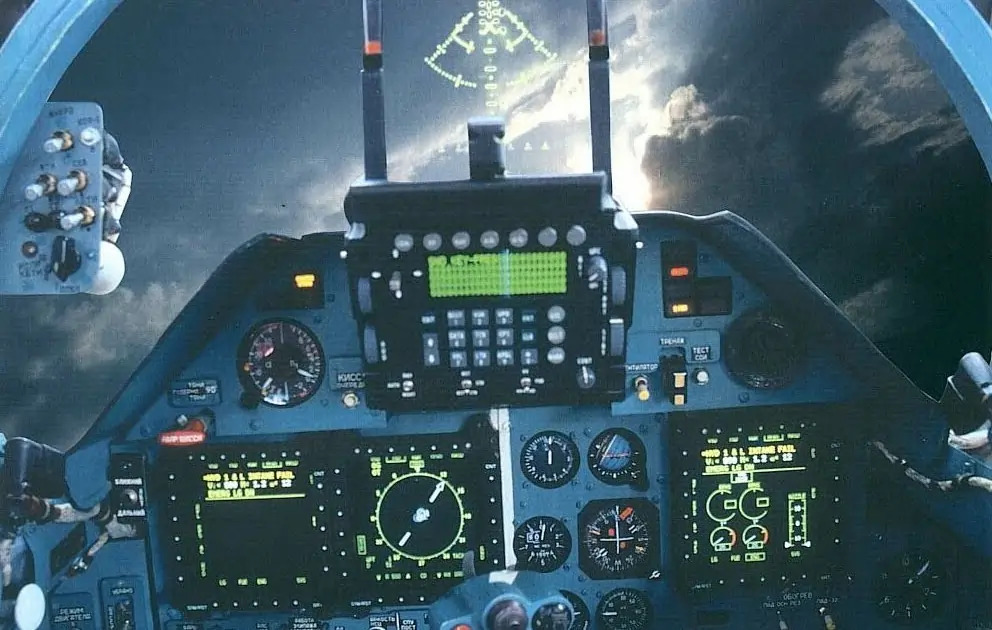
The tandem glass cockpit of the Su-30MKI accommodates two pilots. The forward cockpit is equipped with an integrated avionics suite incorporating Elbit Su 967 head-up display (HUD), seven active-matrix liquid crystal displays (AMLCD), and primary cockpit instrumentation from Thales. The HAL-built aircraft are equipped with multifunction displays (MFD) supplied by Samtel Display Systems.
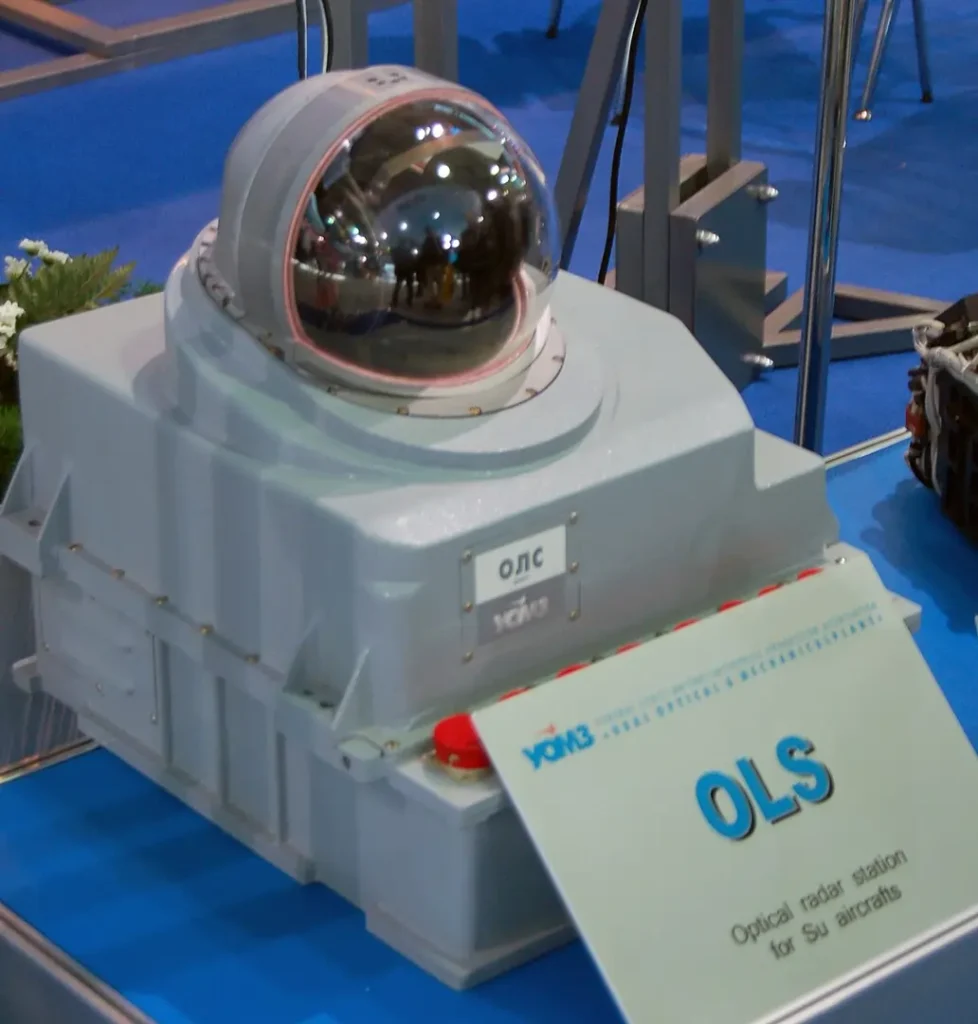
The aircraft integrates a fly-by-wire (FBW) flight control system. A large monochromatic display screen installed in the rear cockpit provides air-to-ground missile guidance. The Su-30MKI also has an N011M passive electronically scanned array radar, an OLS-30 laser-optical locator system, and a Listening target designation pod to guide air-to-surface missile and laser-guided munitions. The N011M will be replaced with a new Zhuk AESA (active, electronically scanned array) radar.
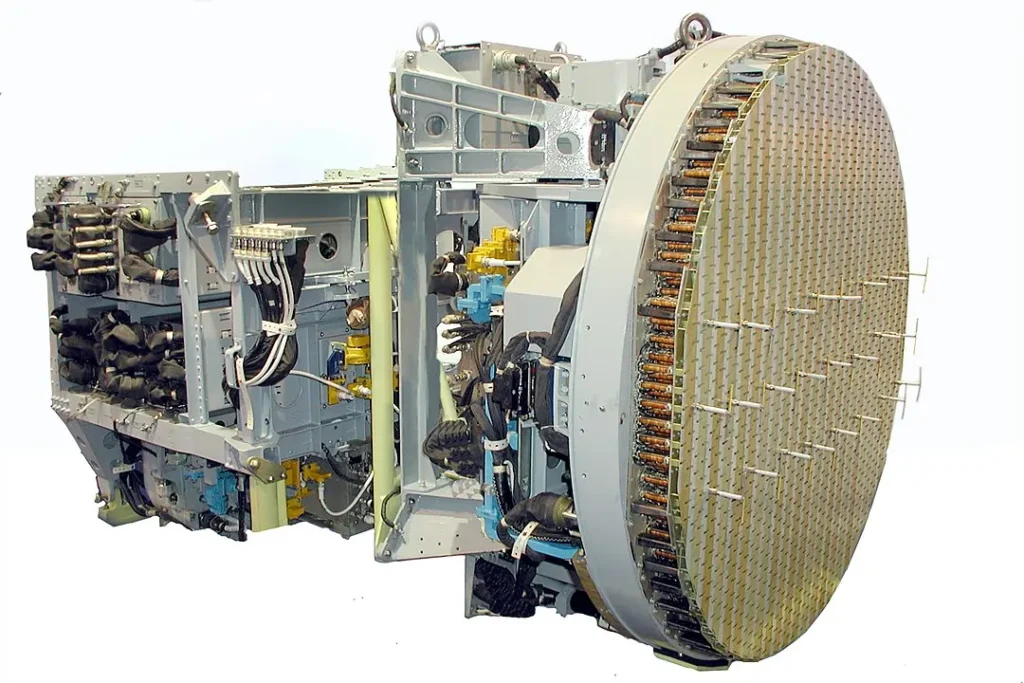
Weapon Systems and Countermeasures
The Su-30MKI is armed with a 30mm Gsh-30-1 cannon with 150 rounds of ammunition. The aircraft features 12 hardpoints capable of carrying external stores of up to 8t. It can launch a range of air-to-surface missiles, including Kh-29L/T/TYe, Kh-31A/P, Kh-59M, and Nirbhay.
The Su-30MKI fleet of IAF was fitted with the air-launched version of BrahMos supersonic cruise missiles, successfully tested in November 2017. The BrahMos can strike targets within the range of 290km. The IAF completed the successful integration of the cruise missile on the fighter, with the third live firing of the rocket from the aircraft in December 2019.
The aircraft can also carry Vympel-built R-27R, R-73, and R-77 air-to-air missiles, as well as rocket pods, KAB-500, and KAB-1500 laser-guided bombs. The Su-30MKI is fitted with a Tarang radar warning receiver (RWR) indigenously developed by the Defence Research and Development Organisation (DRDO). The aircraft also integrates chaff/flare dispensers and active jammers.
Sukhoi Su-30MKI Engine
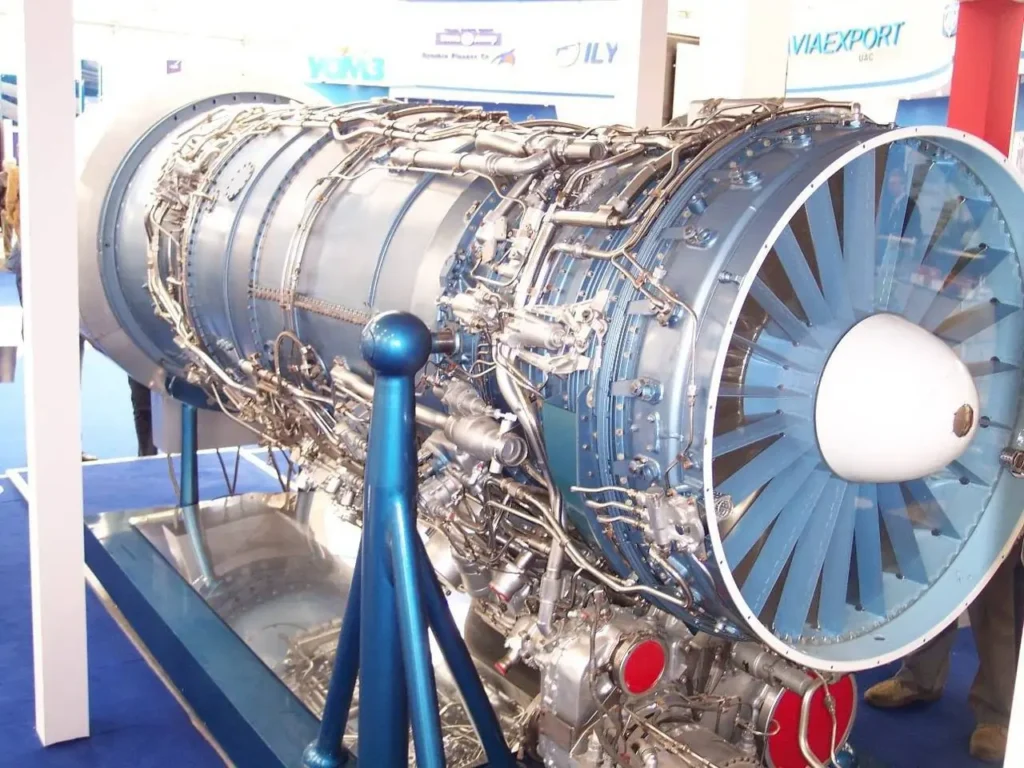
The Su-30MKI is powered by two Al-31FP turbojet engines, each generating a full afterburn thrust of 12,500kgf. The power plant, equipped with thrust vector control, provides a maximum speed of Mach 1.9 in horizontal flight and a rate of climb of 300m/s. The aircraft has a maximum unrefueled flight range of 3,000km. The in-flight refueling system of Su-30MKI provides a maximum range of 8,000km with two refuelings.
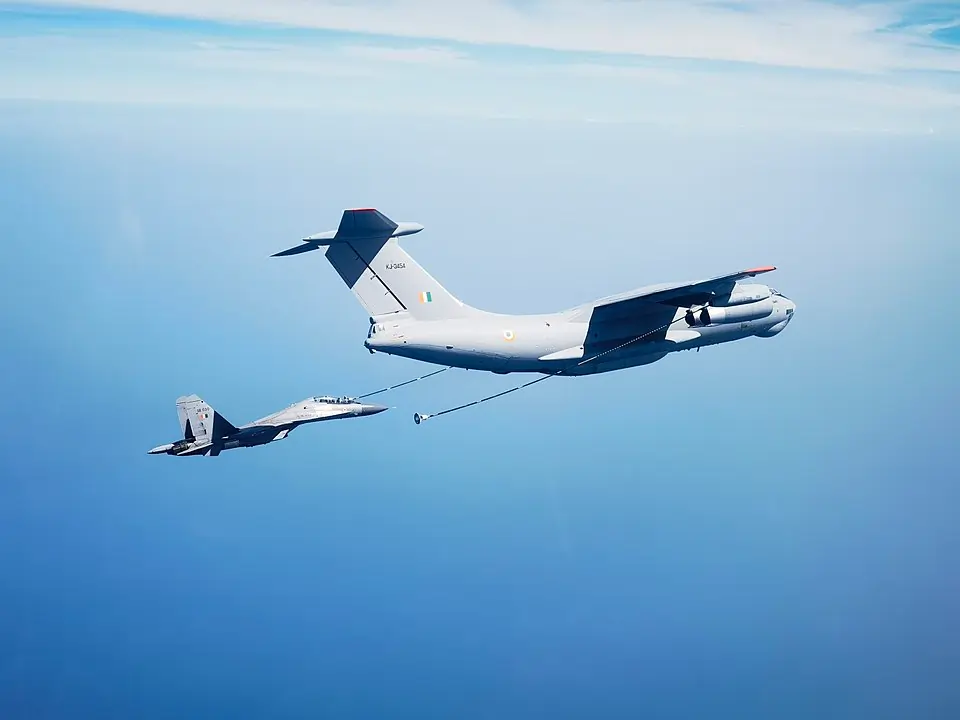
Read More Articles
- Why Cyber Security is Essential: Exploring 5 Key Reasons
- Astra Space’s Financial Struggles: A Close Brush with Bankruptcy
- Introducing the Xogdor Rocket to the Military Realm
- The Formation of the LEO Owner Operators Affinity Group
- Expanding Satellite-to-Smartphone Connectivity
- Navigating Privacy and Safety in Adult Webcam Streaming
- Choosing Between Open Source and Proprietary LLMs
- Rethinking Food Packaging for a Sustainable Future
- Mastering Typography in Web Design
- Exploring Typography Trends for Digital Design in 2024
- Unlocking Sustainable Economic Growth Through Innovation
- Navigating the Financial Landscape of Executive Education and MBA Programs
- Understanding Information Technology: The Backbone of Modern Business
- Understanding Algorithms: Definition, Functionality, and Real-Life Applications
- Understanding Machine Learning: A Comprehensive Exploration
- Unlocking the Power of Machine Vision: Revolutionizing Industries
- Unlocking the Power of Expert Systems: Enhancing Decision-Making with AI
- Unlocking the Power of Natural Language Processing
- Unlocking the Secrets of Artificial Intelligence
- Optimizing Logistics with AI: Revolutionizing Efficiency in Package Routing
Frequently Asks Questions
What are the key features of the Sukhoi Su-30MKI Fighter Jet?
The Su-30MKI is a multi-role fighter aircraft featuring advanced avionics and weapon systems. It boasts a highly maneuverable airframe, canards for increased agility, and thrust-vectoring engines, enabling superior performance in both air-to-air and air-to-ground missions. Its radar system provides long-range detection and tracking capabilities, while its electronic warfare suite ensures protection against enemy threats.
What is the significance of the “MKI” designation in the Sukhoi Su-30MKI?
The “MKI” designation indicates that this variant is specifically customized for the Indian Air Force (IAF). It incorporates several modifications and enhancements tailored to meet the operational requirements of the IAF, making it distinct from other versions of the Su-30.
How does the Sukhoi Su-30MKI compare to other contemporary fighter jets?
The Su-30MKI is often regarded as one of the most potent multi-role fighter aircraft in its class. Its combination of maneuverability, advanced avionics, and weapon systems place it on par with, if not superior to, many contemporary fighter jets. Its ability to engage targets both in the air and on the ground, coupled with its long-range capabilities, gives it a significant edge in modern aerial warfare scenarios.
What role does the Sukhoi Su-30MKI play in the Indian Air Force’s operational strategy?
The Su-30MKI serves as a cornerstone of the IAF’s fleet, fulfilling various roles such as air superiority, ground attack, maritime strike, and aerial reconnaissance. Its versatility allows it to adapt to a wide range of mission requirements, making it a crucial asset for maintaining air dominance and safeguarding India’s national security interests.
Can the Sukhoi Su-30MKI operate in diverse environmental conditions?
Yes, the Su-30MKI is designed to operate effectively in diverse environmental conditions, including high altitudes, extreme temperatures, and varying weather conditions. Its robust airframe and powerful engines enable it to perform optimally in challenging environments, ensuring operational flexibility across different theaters of operation.
What are some notable combat capabilities of the Sukhoi Su-30MKI?
The Su-30MKI’s combat capabilities encompass a wide array of roles, including beyond-visual-range air combat, precision strike missions, suppression of enemy air defenses, and electronic warfare. Its advanced radar and sensor suite, coupled with its ability to carry a diverse range of weapons, enables it to engage multiple targets simultaneously with precision and lethality.
How does the Sukhoi Su-30MKI contribute to India’s defense capabilities?
As one of the most technologically advanced fighter aircraft in the IAF’s inventory, the Su-30MKI significantly enhances India’s air defense capabilities. Its long-range strike capabilities, combined with its ability to operate alongside other platforms and conduct complex missions, make it a vital asset for deterring aggression and protecting Indian airspace.
What are some of the recent upgrades or modernization efforts for the Sukhoi Su-30MKI?
The Su-30MKI has undergone several upgrade programs aimed at enhancing its combat effectiveness and extending its service life. These upgrades may include improvements to avionics, radar systems, electronic warfare capabilities, and integration of new weapons systems, keeping the aircraft at the forefront of technological advancements in aerial warfare.
How does the Sukhoi Su-30MKI contribute to international collaborations and partnerships?
The Su-30MKI’s capabilities and reputation have contributed to strengthening India’s defense partnerships with various countries. Through joint exercises, training programs, and technology transfers, the Su-30MKI serves as a platform for enhancing interoperability and fostering closer defense ties with partner nations, thereby promoting regional stability and security.
What are some challenges or limitations associated with the Sukhoi Su-30MKI?
Despite its advanced capabilities, the Su-30MKI faces challenges such as maintenance requirements, logistical support, and evolving threats in modern warfare. Additionally, advancements in adversary technologies may necessitate ongoing upgrades and adaptations to ensure the aircraft remains effective in future operational environments.


